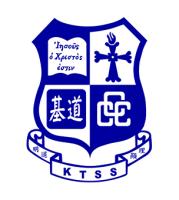| Language Policy |
Developing students’ bi-literate and tri-lingual competence is one of the major concerns. At junior secondary level, the teaching of some topics of Computer Literacy and Home Economics Practical lessons is conducted in English. English glossaries are introduced in the teaching of Integrated Humanities. In classes with students of higher academic ability, the teaching of Mathematics and Integrated Science is also conducted in English. Besides the formal curriculum, bimonthly, students read English materials in the morning reading time. A Reading Buddy Scheme is held regularly at lunch time. English Day in every month organizes a variety of learning activities, such as, Drama, competitions, games, assemblies and etc. To fully utilize the summer vacation, Language Arts Program and English Camp are organized. The language of Putonghua is promoted through the teaching of Chinese Language in Putonghua in junior secondary levels. |
| Learning and Teaching Strategies |
Enhancing learning and teaching effectiveness is another major concern. Learning atmosphere is promoted through enriching students’ self-regulated learning ability and habit. IT is broadly applied in enriching the classroom pedagogy. Integrated Humanities at junior secondary level promotes learning both within and outside the classroom. Modular approach is adopted to improve learning and teaching effectiveness of subjects with less lesson time. A broad curriculum is offered at senior secondary, enabling students to select subjects according to their interests and abilities. |
| School-based curriculum |
1. Electives: 2X. Chinese History, History, Economics, Geography, Physics, Chemistry, Biology, Business, Accounting and Financial Studies, Information and Communication Technology, Physical Education, Visual Arts<br> 2. Curriculum highlights: S.5 and S.6 students take Applied Learning Courses offered by VTC or Tertiary Institute. Video production, musical, stage lighting effect, hip-hop, graffiti, painting & pottery, electronic organ and etc are offered as senior secondary Arts Education Programs. |
| Approach to Catering for Learner Diversity |
Lunch-time learning scheme and after school tutorial classes are provided in order to enhance students’ academic performance. After lunch, students are encouraged to take part in a variety of activities arranged according to their different interests. Study groups are set up after school enabling students to work collaboratively with peers aiming to improve study skills, habit and attitude. The Education Psychologist, School Social Workers and Guidance Teachers work together to provide appropriate support to enhance student development. |
| Approach to Integrated Education |
Our school has established Learning Support Committee (Special Educational Needs, SEN). The board of this committee includes assistant principal, SEN coordinator, SEN support teachers, educational psychologist as well as Discipline Committee and Counseling Committee. The board caters for learning diversity and provides appropriate supporting services so as to upgrade our students’ learning capacity and assist them in integrating into the school life.<br><br>Our school uses Learning Support Grant wisely by employing one counseling teacher in order to provide assistance for our SEN students. We outsource professional services e.g. speech therapy and occupational therapy. Apart from these, the social welfare organizations launch campaigns such as multi-intelligence social groups and interest groups, so as to support students with AD / HD and Autism Spectrum Disorder. We also work hard on educating students with dyslexia. For instance, concerning language learning, the subject teachers will enhance students’ learning capacity by providing after-school classes to our students. In addition, our team works with educational psychologist and the Assessment team to apply special arrangements for students with SEN for internal and external examinations.<br><br>Our team always emphasizes on the communication and connection with parents. Every year, we arrange Parents’ Talk, and conduct survey by doing random questionnaires with the parents through phone calls so as to seek advice from them and collect their comments on the supporting services. We also launch effective parent-child activities with social workers. Besides, students interact with parents through activity learning and work experience activities which enhance communication between them and improve their relationship |
| Education Support for Non-Chinese Speaking (NCS) Students |
|
| Home-School Co-operation |
Our Parent-Teacher Association was established in 2003.<br>We strongly believe the collaborative efforts of home and school will help children who are brought up under love and care of homes and schools to develop and grow healthily. |
| School Ethos |
Promote Christ-centered outlook, uprightness and righteousness as the norm for living as an individual and within the community. |
| School Development Plan |
1. Seek knowledge, be creative, and strive forward.<br>2. Be grateful and positive in life. |
| Teacher Professional Training and Development |
To enable students to learn effectively as well as to obtain useful pastoral support, teachers are required to engage in continuous enhancement in professional competencies. Teachers are actively engaged in development through Professional Development Day, workshops, talks, co-teaching, collaborative lesson preparation and peer lesson observation. Among the CCC Secondary Schools, there are also exchange visits and subject teacher networks. Teachers are regularly attending programs organized by universities and EDB. |
| Life-wide Learning |
More than 50 number of activity groups to cater for student interests. Expert tutors and coaches are employed to provide trainings at venues and centers both within and outside school. |
